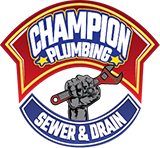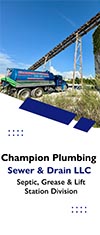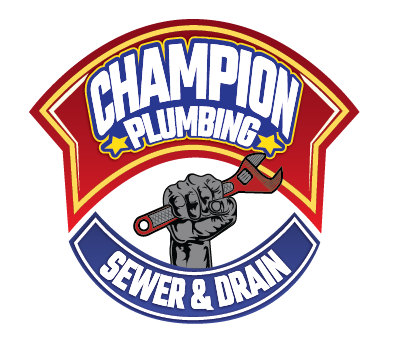ATU Septic Tank Installation & Maintenance in Charlotte & Lee Counties
An ATU (Aerobic Treatment Unit) septic system is an advanced, multi-chambered onsite wastewater treatment system that uses aerobic bacteria and oxygen to break down organic waste, resulting in higher quality, cleaner effluent than traditional anaerobic septic systems. ATUs are beneficial in challenging site conditions, such as small lots, high water tables, poor soil quality, or areas near sensitive water bodies, and they reduce the environmental impact of wastewater by producing less biological material and fewer nutrients.
An ATU (Aerobic Treatment Unit) Septic System requires a mandatory, lifelong maintenance contract with a Florida-approved maintenance entity. This contract ensures the system is inspected and serviced at least twice a year to maintain permit compliance and functionality. The contract must be registered on the Florida Department of Health’s MARS system.
Who Can Be a Maintenance Entity?
- The maintenance entity must be a permitted service contractor, certified to maintain the specific type of ATU system installed.
What Does the Contract Cover?
- Inspections & Service: The maintenance entity performs inspections and servicing of the ATU a minimum of two times per year to ensure proper operation.
- Reporting: Inspection reports must be submitted to the Florida Department of Health in your county.
Why is the Contract Necessary?
- Environmental Compliance: The ATU system provides treatment to meet environmental standards, and the contract ensures it continues to function as designed.
- Longevity of System: Proper maintenance prevents issues that could lead to costly repairs or premature system failure.
- Legal Requirement: A valid contract is a requirement for the ATU to operate, and failure to comply can result in a loss of permit.
What if My Contract Expires or I Want to Change Providers?
- You must ensure a valid contract is in place for the entire lifespan of the ATU. · Notify the Florida Department of Health in Lee County or your county’s environmental health department when you renew or change maintenance entities.
With Champion Plumbing, you get peace of mind knowing your septic system is set to last.
Septic Tank FAQs
A septic system is an underground wastewater treatment system commonly used in areas without access to a municipal sewer. It consists of a septic tank that separates solids from liquids, and a drain field (or leach field) where the filtered wastewater is dispersed and naturally treated in the soil.
Most septic tanks should be pumped every 2–3 years, but the exact frequency depends on the size of the tank, household size, and usage. Regular pumping helps prevent backups and system failure.
If you notice any of these, call a professional immediately.
Check your home’s site plan or septic system records. If unavailable, a septic professional can locate it using a probe, flushable transmitter, or camera inspection.
Never flush or drain:
- “Flushable” wipes
- Grease or oil
- Feminine hygiene products
- Harsh chemicals or bleach
- Cat litter
- Coffee grounds
These can damage your system or cause blockages.
In most cases, no. A healthy septic system naturally maintains the bacteria it needs. Some additives may help, but others can do more harm than good. Check with a licensed professional before using them.
It’s not recommended. Food waste adds extra solids to the tank and can lead to more frequent pump-outs or clogging.
On average, pumping costs range from $350–$600, depending on the tank size, location, and local rates. It’s a small price to pay to avoid costly repairs down the line.
The drain field disperses treated wastewater into the soil. To protect it:
- Don’t Park or drive over it
- Don’t plant trees nearby
- Avoid flooding the area with irrigation or runoff
- Keep heavy equipment off the area
Yes. A full septic inspection is often required during real estate transactions. It ensures the system is functioning properly and helps avoid future issues or liabilities.
Yes. Excess rain can saturate the drain field, preventing proper drainage and possibly causing backups. Avoid overloading the system during heavy storms.
- Pump regularly (every 2–3 years)
- Use water efficiently
- Don’t flush harmful materials
- Schedule routine inspections
- Protect your drain field
Contact Champion Plumbing Sewer & Drain
For pump truck services that’ll keep you and your property safe, contact Champion Plumbing Sewer & Drain. We have many years of experience helping homeowners and business owners when it comes to their wastewater needs.


